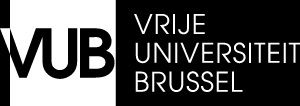Eight version2-machines have been built & put through EOL-tests.
Thanks to Noham, Dilan, Mohamed, Thomas, Michiel & Nemo for all the work.
August 10th
New motherboard rev3 arrived from Eurocircuits.
Thanks to Thomas Lapauw for the revision, Hendrik & Laurent for help with debugging, Thomas Peeters & Noham for crimping all the connectors.

August 2nd
New, cleaned-up oxygen system layout for v2, done by Rayan.

Juli 31st
We had a copy of the bellows 3D-printed in TPU on a HP Fusionjet. This material is quite a bit stiffer than the silicone we used (Shore 90 vs Shore 50) but this technique could provide an alternative solution to injection molding.
The bellows has been mounted in a test machine and is run through cycles in a longevity test.
Measurements show the motor needs to put out 25% more power to actuate the more rigid bellow, but the controller seems to behave identical to the blue bellows.


July 16th

When the endurance tests on the ambu bags showed the bags fail rather rapidly, Jef & the team decided to develop a bellows-based machine.
Version 2 uses a custom-built silicone bellows, that went through 2’000’000+ actuations without visible wear.
The machine is half the size and 60% of the weight of version 1.
It implements an oxygen mixing system that can deliver FIO2-values of 21 to 100% with +-5% accuracy, while taking oxygen input from a 5-bar pressure line or a low-pressure oxygen generator.
While the design implements a custom-built bellows, the mechanics and electronics use the same widely available automotive parts as version 1.
May 7th
We are running & organising tests for version1.
Alos working on oxygen mixing, duration tests & a bellows for version 2.
You can find new pictures in the gallery:
April 23rd
Demonstration of:
-disconnected PC alarm & recovery
-power out alarm
-disconnected tube / pressure alarm & recovery
-blockage /volume alarm & recovery
-PEEP disconnect & recovery
April 17th
It felt like a slow week, but a lot got done.
We took delivery of the 50 Series 1 machines from Audi last Friday and started putting in the motherboards the next day.
Thanks to Jarne, Brecht, Hendrik, Martin, Mohammed, Rupert, Rayan & Roald for the help putting the machines together over the next days.

The boards needed a couple fixes but are working. Sensor modules are working. We have about 25 machines fully built-out now.
Number 1 to 13 will stay in Belgium and will be used for tests, both in-house and at partner locations.
The other machines will be sent out early next week to other research groups in Italy, Canada, Brazil, Jordan & Spain who are interested in testing & co-developing the ventilator.
The 50-machine-run at Audi & all the component sourcing involved has proven the validity of the design approach for rapid-manufacturing.
Using their manual assembly line, Audi can output one assembled machine frame every 2 minutes.
Branimir & Bruno have been running the machines through the functionality tests specified in the MHRA-document, Simon has been finalizing the end-of-line tests.
The interface has come together; Thomas, Tom, Loes, Frank & all have been bug-fixing most of the week
Sourcing the medical parts (respiratory valves, PEEP-valves) has proven troublesome. Theo and Ben have designed 3D-printable versions, and have been producing these. We are using them for on the 25 test setups for now, but may develop them for compliance with medical use.
We have been demonstrating the machine & collecting feedback. The design requirements for version 2 are taking shape.
Koen Vanden Boer, at the Flanders Make testsite in Lommel has been performing endurance tests on the Ambu bags. With the plunger from prototype 8 we had bag failure at 50’000 plunges.
We need to achieve 600’000 repetitions at full volume to safely use the machine for 2 weeks. The new plunger design has achieved 500’000 plunges and is still going. An additional 8 test stands have been installed and are pumping away to achieve more statistically valid results.
Parallel to testing version 1, Jef aims to have a first mechanical prototype of version 2 finished by the end of the week.
However, with the pc-interface, the aluminium frame & the electronics the machine is developing into a solid, professional design. The bag has, at least in perception, become the weakest link.
We intend to quantify & document the durability of the Ambu bag concept and fully evaluate the performance of version 1,
but it is becoming highly likely version 2 will have a custom-built bellows, replacing the Ambu bag with a more durable solution.
The ventilator gets written about in De Standaard tomorrow:
https://m.standaard.be/cnt/dmf20200416_04924962
We updated the website with pictures from this week:
https://breathney.cc/gallery/
April 14th


We are currently finishing assembly, debugging and testing the first series of machines.

Update April 10th

The 50 machines, assembled by Audi Brussels, arrived at the lab today.
With their setup, there are only 2 minutes between every finished machine rolling of the production line.
We also received the finished main PCB from Eurocircuits,
and the Arduino shield/sensor boards sponsored by Barco.
Aluminium panels were cut by Team.



We are mounting the boards in the machines this weekend and should be able to send out test machines by Tuesday.

